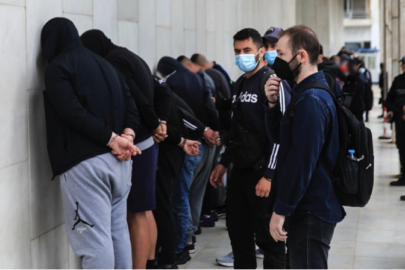Greek police are warning parents about a dangerous new teen craze, known as “Game of 72”, which is making the rounds on social media. Police Major General Manolis Sfakianakis, the head of the Cyber Crime Center, warned about a “game” that encourages young people to disappear and remain incommunicado for 72 hours. The participants receive points based on the amount of …chaos and panic they cause, as parents and loved ones agonize over their fate.
Speaking at the international conference to alumni of the London School of Economics, Sfakianakis said: “Greece is efficient in its missing people searches at an international level. Cyber crime is globalized and is currently taking place in England, France, and other countries, and is headed to Greece soon. The new game that is on its way, but has not yet arrived in Greece, is called ‘Game of 72’, and is a new sensation where minors challenge each other to disappear without leaving a trace for 72 hours. It may not be in Greece yet but that doesn’t mean that there is no danger, and police around the world are issuing warnings to parents. We are already preparing for its arrival through prevention.”
Shrouded in secrecy, news of the contest’s existence (it can also be called 12, 24 or 72) came to light when a young French girl, aged 13, went missing for three days in her country before turning up again safe. She refused to reveal where she had been, but admitted to playing the Facebook-disseminated game.
The 85 people working in the five units of the cyber squad are on alert and are currently investigating the phenomenon. They believe it is only a matter of time before it comes to Greece if it hasn’t arrived already. Infokids reported two missing teens, aged 17 and 15 years, who went missing without a reason only to show up again without giving a reason.
While Game of 72 looms menacingly, cyber bullying has been a problem for several years. The Cyber Crime Center has visited 5,400 schools around Greece in an effort to stop this form of online violence.




































